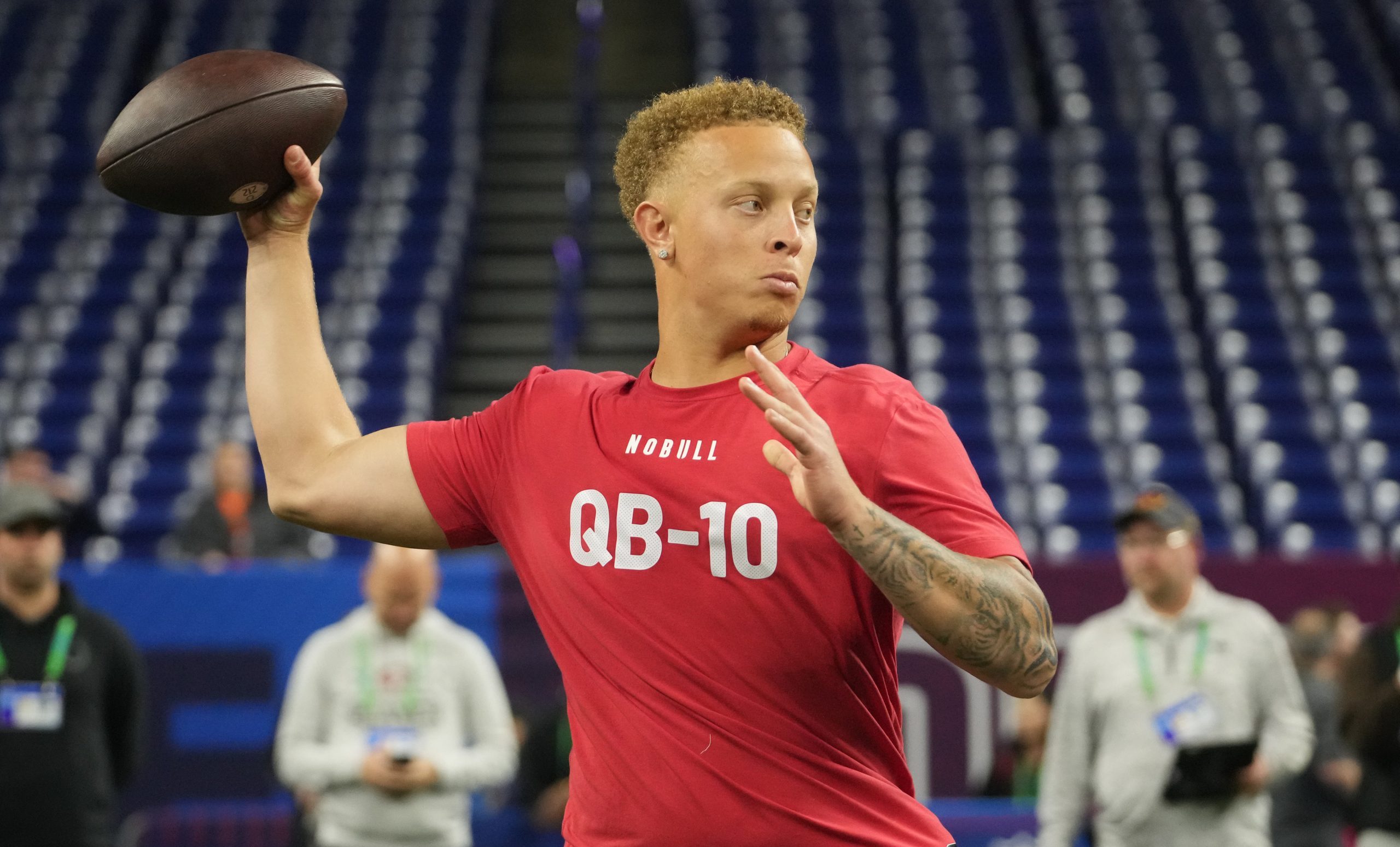Deadspin has substantial egg on their face thanks to Dave McKenna’s story about U.S. Senate candidate Cory Gardner (currently a Republican congressman from Colorado) not playing high-school football being proven substantially wrong. To their credit, they’ve largely faced up to the blame for it, publishing an update (but not an official correction or apology), as well as a second story entitled “How Deadspin F—ed Up The Cory Garnder Story” and having both McKenna and Deadspin editor Tommy Craggs speak to The Washington Post‘s Erik Wemple about what went wrong here.
However, their comments largely focus on their source changing his story. That’s valid to a degree, but there were significant other problems with this story in the first place, and it provides some lessons on what not to do with “gotcha journalism” and/or political stories.
The issue here isn’t really Deadspin deciding to chase this story. While some would argue Gardner’s high school football career isn’t terribly relevant to the Senate race (or the sports world), the candidate himself opened the door by prominently discussing his football experience and directly comparing it to the current race in an Oct. 13 Washington Post profile. Public figures fabricating or exaggerating oft-referenced elements of their background can be a big deal with significant implications for them; just ask “Vietnam vet” Tim Johnson, “master’s degree holder” George O’Leary, “undergraduate degree holder” Steve Masiello, or even “dead girlfriend honourer” Manti Teo (the last one of which Deadspin deserves tons of credit for breaking).
McKenna himself has done good work on this front during his time with the Washington City Paper, too, busting a Maryland congressman who claimed a career with the Dallas Cowboys and a D.C. councilman who claimed a star-studded high school basketball career (although that councilman brought it upon himself by asking McKenna to confirm it). Gardner’s football background doesn’t necessarily approach the level of any of those stories, but it would have been worth covering. The problem is with how Deadspin handled it, which may hurt their credibility as a news source.
The site got off to a good start on this story; as Craggs outlines, they talked to retired teacher and high school football historian Chuck Pfalmer, who said “I know Cory, I’d know if he played,” they talked to a local newspaper editor who had no recollection of Gardner’s football career, they searched for articles about him playing football online and they even tried to track down school yearbooks (with no success). All of that’s solid reporting. The issue is with that being enough to run this piece.
There’s a particularly revelatory quote from Craggs’ interview with Wemple, where he says “If you’re looking for someone to blame here, blame me for getting way too cocky about my site’s ability to prove a negative.” Cockiness may well have been a factor here, and the human desire for pattern-matching may have played a role too. The early details with this looked a lot like what happened in the Te’o case, and of course, that one proved to be fabricated. However, when you look at the evidence here, it’s not all that strong.
While having a high school football historian say on the record that “Cory Gardner wasn’t on the football team” is a decent bit of evidence, the initial piece includes Pfalmer saying it’s possible Gardner played freshman football. It also mentions that Pfalmer kept stats for the team for every game from 1971 to 2010, but it didn’t have him actually check those stats for the years in consideration.
According to The Denver Post, he did that later and attempted to e-mail McKenna with his findings that Gardner had one tackle and three assists in his third year (without success). While it’s not McKenna’s fault that Pfalmer’s e-mail didn’t get to him, it’s curious that he didn’t have Pfalmer actually check the stats while he was on the line (or get back in touch with him after he checked the stats). Moreover, Yuma Pioneer editor Tony Rayl (mentioned in the Deadspin piece, but not by name) told the Post that Gardner did play in his younger years, different from the comments attributed to him in the Deadspin piece.
Yes, this is somewhat on Pfalmer if he was in fact as definitive as Deadspin has him being (he disputes their quotes). However, the human memory is a flawed instrument even when it comes to recent events; relying solely on a 77-year-old man’s memory of football teams from over 20 years ago is problematic, especially when there’s a statistical database that he had but didn’t consult. The size of a football team is an important factor here too; it’s a lot easier to forget a undistinguished football player (as Gardner appears to have been) given the size of the roster than it is to forget someone from another sport. Beyond Pfalmer’s memory, the rest of the Deadspin evidence is inconclusive at best. A LexisNexis search is a good step, but a lack of results there doesn’t prove anything. Similarily, an inability to find yearbooks doesn’t confirm Gardner’s story about football, but it doesn’t refute it, and neither does a newspaper editor’s memory (if he did in fact say that Gardner didn’t play; he disputes that). It’s also curious that Deadspin didn’t appear to try and track down other former players from the years in question.
The subject of this piece makes it particularly troubling that it ran with this little firm evidence. “Cui bono?” (“To whose benefit?”) is a vital question to ask in journalism, and it’s especially true in pieces about a political campaign. Most pieces are going to benefit one candidate or the other in some way, so there’s even more source bias to consider than usual, and the implications of getting a story wrong are highly significant, as it can be very difficult to correct it after the fact (consider the initial swiftboating saga).
It’s notable that Deadspin has a reputation for being very left-slanted, too (for just one example, an entertainment piece on Red Dawn they ran Thursday called it “delusional right-wing porn” in the headline; their “Republicans” tag also has some interesting stuff), so their motivations are going to be questioned in any attack on a right-wing candidate. That should provide even more impetus to get their facts right, but it didn’t in this case. Beyond that, McKenna’s piece didn’t merely raise questions about Gardner’s career; it outright called him a liar. Moreover, McKenna took exception with Gardner’s policies long before he got to his football career, saying he possessed “homo-hatin’ and climate-change-denyin’ conservatism.” If Deadspin wants their site to be about political commentary, fine, but starting with personal attacks on someone’s positions is a curious approach in a piece that’s supposed to be an objective assessment of the facts of his football career, and it’s an approach that calls their own bias into question.
There are a few overarching lessons for media outlets to take from this saga. First off, sources’ testimony can be unreliable, especially if it’s based just on memory of something that happened a long time ago and wasn’t particularly significant at the time. Using the memory of just one source in particular for a story of this nature is problematic regardless of how much of an expert he is. Records are much harder to alter, and thus are far more conclusive than testimony from memory. Beyond that, political stories need to be handled with the utmost caution, especially if your outlet’s already thought to have a bias. Deadspin ran with inconclusive evidence here, and they got burned for it. It’s hard not to see their journalistic reputation suffering as a result.








Comments are closed.